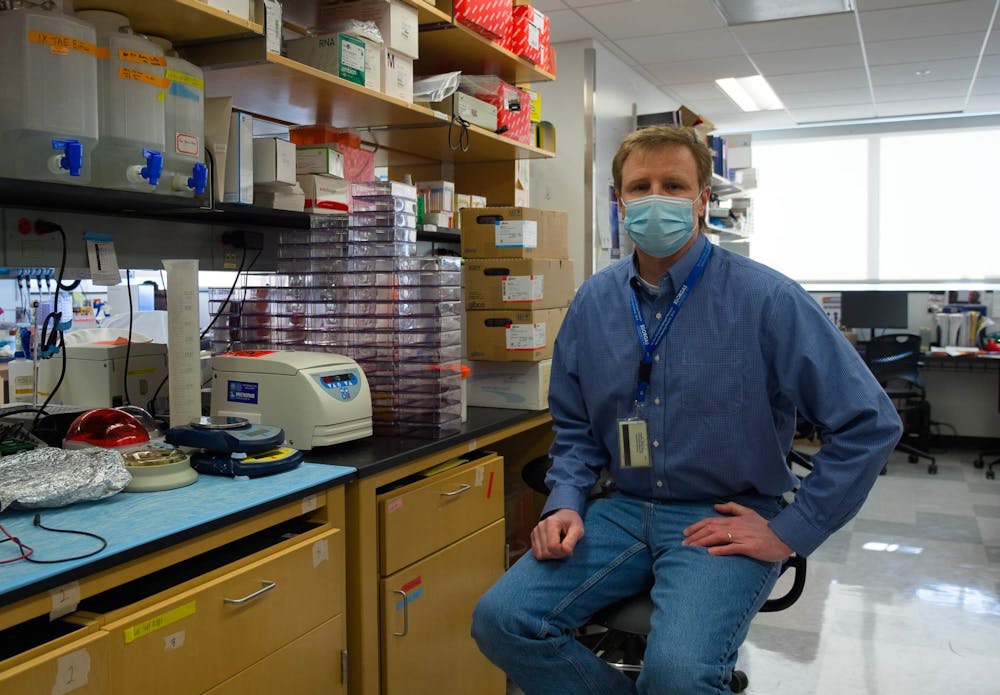COVID-19 is not the first pandemic, yet much of the world was unprepared to face it. Scientists at UNC are committed to ensuring this lack of preparedness does not happen again.
The Rapidly Emerging Antiviral Drug Discovery Initiative was founded in April 2020 as a collaboration between UNC, the Eshelman Insitute for Innovation and the Structural Genomics Consortium. Since its founding, READDI has made significant strides in garnering support and partnerships for its mission.
When it became clear that COVID-19 was going to be a real threat, Ralph Baric, Nathaniel Moorman and Mark Heise channeled their worries about the spread of the virus to create READDI.
“The scientific community tends to be reactive when an outbreak occurs,” Heise, a professor of genetics at UNC’s School of Medicine and READDI co-founder, said. “So we started to think about ways that we could maybe not be reactive, but be proactive in the face of pandemics — and that is really what drove the READDI concept.”
John Bamforth, interim director of READDI and director of the Eshelman Institute for Innovations, said the goal of the initiative is to have five novel broad-spectrum antiviral therapies go through phase one of human safety testing within the next five years.
These therapies aim to save lives in the current pandemic, and help prepare for future pandemics before they begin.
UNC students have reaped the benefits of working alongside the world’s leading scientists.
Emily Madden, who recently defended her Ph.D. in microbiology and immunology from the UNC School of Medicine, said she has been working with READDI since the beginning.
“Dr. Heise approached me and asked if I would be interested in working with READDI,” Madden said. “I absolutely was because I was working on my Ph.D. to help study viruses to be prepared for outbreaks and pandemics. In the lab, I use an assay that screens how well a virus is growing in the presence of a drug.”




